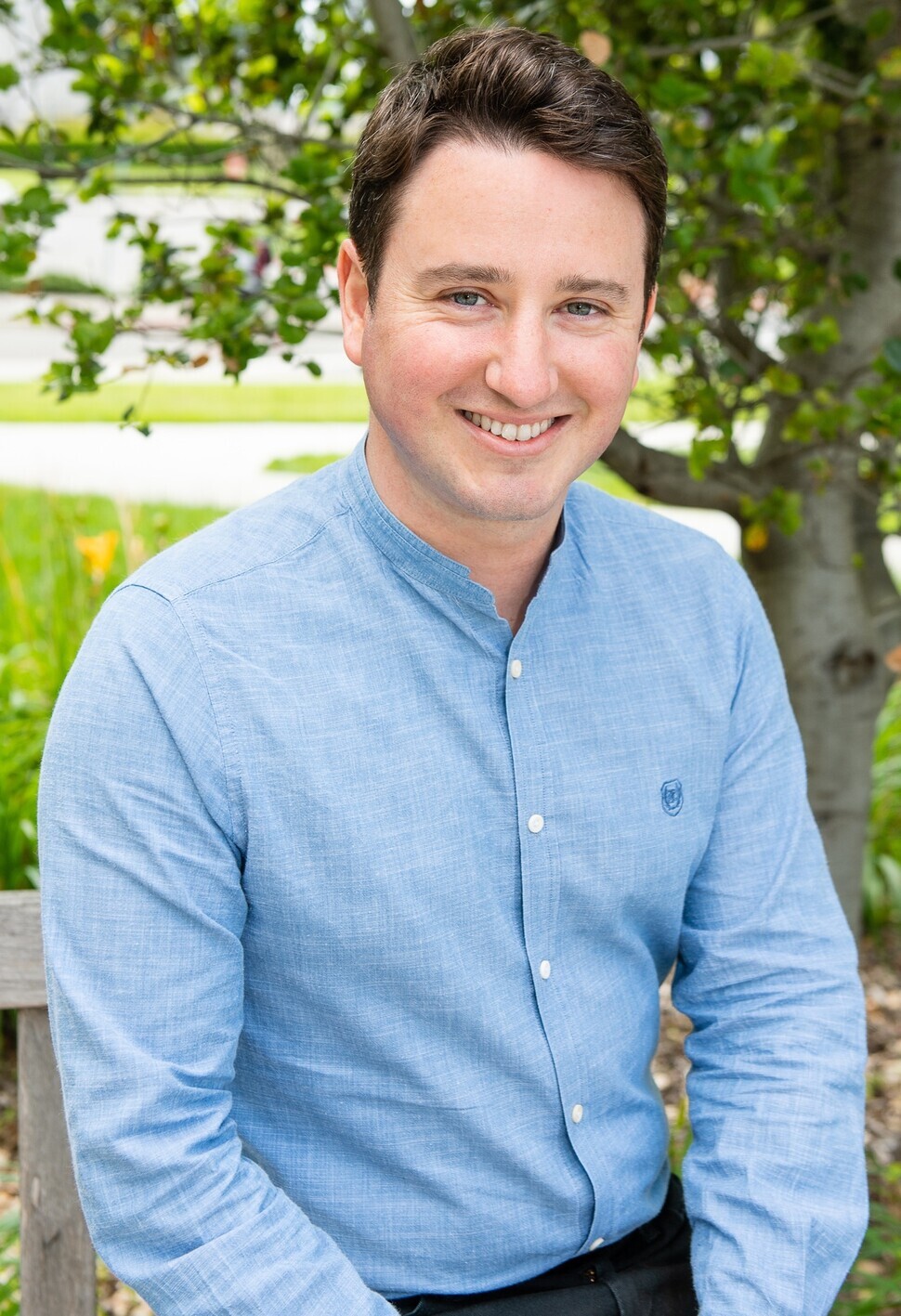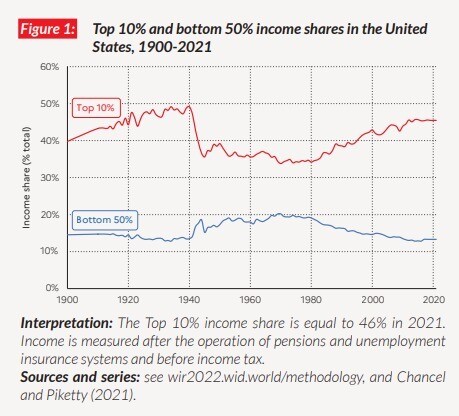hankyoreh
Links to other country sites 다른 나라 사이트 링크
Four prices of inequality as seen by a John Bates Clark Medal-winning economist

There is an award that is said to be even more difficult for US economists to win than the Nobel in economic science: the John Bates Clark Medal. Every year, the American Economic Association presents it to a US economist under 40 who is deemed to have made a major contribution to economic thought and knowledge.
Even truly outstanding scholars could find themselves ruled ineligible because of the age limit. Established in 1947, the honor was presented every other year until 2009, when it became an annual prize.
The awardees are a list of true luminaries. Many of them are names familiar from economics textbooks, such as Paul Samuelson, Milton Friedman, James Tobin, Kenneth Arrow, and Robert Solow. Well-known winners from more recent years have included Joseph Stiglitz, Paul Krugman and Lawrence Summers.
This year’s winner was Gabriel Zucman, a professor at the University of California, Berkeley. The reasons cited by the American Economic Association for his selection filled two whole pages. A single-line summary distills them to his achievements in more sophisticated measures of tax evasion and inequality in income and wealth.
On Oct. 11, Zucman is scheduled to speak at Keynote Session 3 the 14th Asia Future Forum, an event sponsored by the Hankyoreh and organized by the Hankyoreh Economic Research Institute. His topic is “The price of inequality, and who pays the bigger bill.”
The Hankyoreh recently interviewed Zucman via videoconference and email.
Inequality, which alongside the climate crisis poses a threat to human coexistence, is also dangerous in terms of fomenting political anxieties.
Zucman expressed concerns about the rate and degree of inequality. The percentage of income and wealth represented by the top 1% in the US is equivalent to their levels just before the Great Depression began in the late 1920s.
South Korea is no exception to the severe state of inequality. The rate of its progression has also been steep.
In the US, the proportion of income and wealth represented by the top 1% has doubled since the 1980s. Zucman placed the blame for this on market capitalism, including tax cuts and deregulation.
He named four main prices of inequality. The first of them is the potential for damage to be done to the very principles of democracy as the minority accounting for the bulk of income and wealth comes to assume political power as well.
The wealthier these few become, the greater their ability to apply pressure so that budget allocation and policy decisions are beneficial to them. A concentration of wealth translates into a concentration of political power.
Second, the concentration of wealth and income with a minority of people means a smaller share for everyone else. Since the 1980s — a decade that saw inequality rising at a steep rate — the proportion of the overall pie for the lowest-earning 50% in the US has actually shrunk. The growth that has taken place has not been equitable for the other half.

Third, inequality weakens innovation. Zucman stressed that some degree of inequality is necessary as a motivation to drive innovation. It isn’t desirable for everything to be completely equal, he explained.
Conversely, innovation is impossible in an environment of increased inequality. When one person monopolizes wealth and income, the other 99 can no longer find any motivation to innovate.
Fourth, the growth of inequality as tax cuts and other forms of market capitalism intensify makes it impossible to find the resources needed to expand the public goods needed for economic growth, including education, public health and infrastructure.
As the tax burden on the wealthy is lowered, it becomes more difficult for the state to acquire resources through taxation, thus reducing the potential for public investment.
Despite the phenomena of deepening inequality around the world, Zucman is not pessimistic. He views inequality as a matter of political choice.
As an example, he noted how the maximum income tax rate in the US surpassed 90% in the wake of World War II. Then-President Franklin Roosevelt sent a letter to Congress in an attempt to set a kind of income ceiling where no one could earn an after-tax income above US$250,000. His goal was to create a 100% tax rate for any earnings above that.
The “compromise” for that extreme policy approach was the maximum income tax rate above 90%, Zucman explained.
The US tax rate was slashed from the highest among the advanced economies to the upper 20% range during the Ronald Reagan presidency. Within just a few years, it was reduced to the lowest among advanced economies.
Recalling this history, Zucman stressed that the extent of inequality can depend on policy decisions — and that policies fall in the realm of political choice. In particular, he took a positive view of calls within the US Democratic Party for a stronger progressive taxation system in the wake of Bernie Sanders’ bid for president.
When it comes to inequality, different countries follow different paths. Countries in Europe, where the rate of increasing inequality has been less severe than in the US, have adopted more proactive policies in terms of taxation, market regulation, and the minimum wage.
Zucman’s upcoming talk may provide an opportunity for lessons and advice on how South Korea — which is increasingly coming to resemble the US — can reduce the costs associated with inequality.
Those interested in attending the session can register on the Asia Future Forum website (www.asiafutureforum.org).
By Ryu Yi-geun, senior staff writer at the Hankyoreh Economy and Society Research Institute; Ro Young-joon, research assistant at the Hankyoreh Economy and Society Research Institute
Please direct questions or comments to [english@hani.co.kr]

Editorial・opinion
![[Column] Will Seoul’s ties with Moscow really recover on their own? [Column] Will Seoul’s ties with Moscow really recover on their own?](https://flexible.img.hani.co.kr/flexible/normal/500/300/imgdb/original/2024/0513/5917155871573919.jpg) [Column] Will Seoul’s ties with Moscow really recover on their own?
[Column] Will Seoul’s ties with Moscow really recover on their own?![[Column] Samsung’s ‘lost decade’ and Lee Jae-yong’s mismatched chopsticks [Column] Samsung’s ‘lost decade’ and Lee Jae-yong’s mismatched chopsticks](https://flexible.img.hani.co.kr/flexible/normal/500/300/imgdb/original/2024/0512/3017154788490114.jpg) [Column] Samsung’s ‘lost decade’ and Lee Jae-yong’s mismatched chopsticks
[Column] Samsung’s ‘lost decade’ and Lee Jae-yong’s mismatched chopsticks- [Correspondent’s column] The real reason the US is worried about Chinese ‘overcapacity’
- [Editorial] Yoon’s gesture at communication only highlights his reluctance to change
- [Editorial] Perilous stakes of Trump’s rhetoric around US troop pullout from Korea
- [Guest essay] Preventing Korean Peninsula from becoming front line of new cold war
- [Column] The state is back — but is it in business?
- [Column] Life on our Trisolaris
- [Editorial] Penalties for airing allegations against Korea’s first lady endanger free press
- [Editorial] Yoon must halt procurement of SM-3 interceptor missiles
Most viewed articles
- 1[Column] Samsung’s ‘lost decade’ and Lee Jae-yong’s mismatched chopsticks
- 2Ado over Line stokes anti-Japanese sentiment in Korea, discontent among Naver employees
- 3Korean opposition decries Line affair as price of Yoon’s ‘degrading’ diplomacy toward Japan
- 4US has always pulled troops from Korea unilaterally — is Yoon prepared for it to happen again?
- 5Shuttering all foreign worker support centers, S. Korea leaves migrants to fend for themselves
- 6Korean auto industry on edge after US hints at ban on Chinese tech in connected cars
- 7[Photo] Korean students protest US complicity in Israel’s war outside US Embassy
- 8Gangnam murderer says he killed “because women have always ignored me”
- 9Korean med schools swallow bitter pill by pushing back classes to avoid mass flunking
- 10USFK sprayed defoliant from 1955 to 1995, new testimony suggests